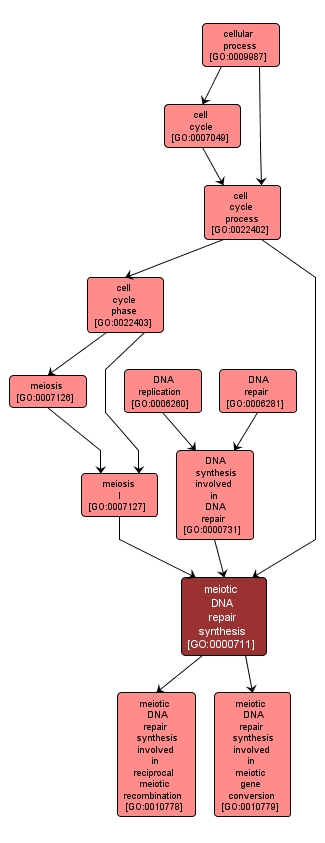GO TERM SUMMARY
|
| Name: |
meiotic DNA repair synthesis |
| Acc: |
GO:0000711 |
| Aspect: |
Biological Process |
| Desc: |
During meiosis, the synthesis of DNA proceeding from the broken 3' single-strand DNA end that uses the homologous intact duplex as the template. |
|

|
INTERACTIVE GO GRAPH
|














